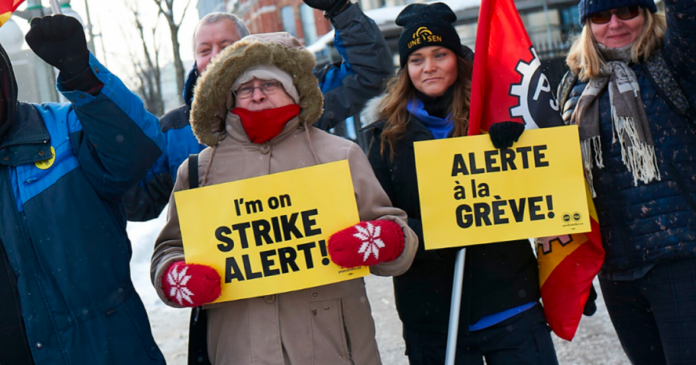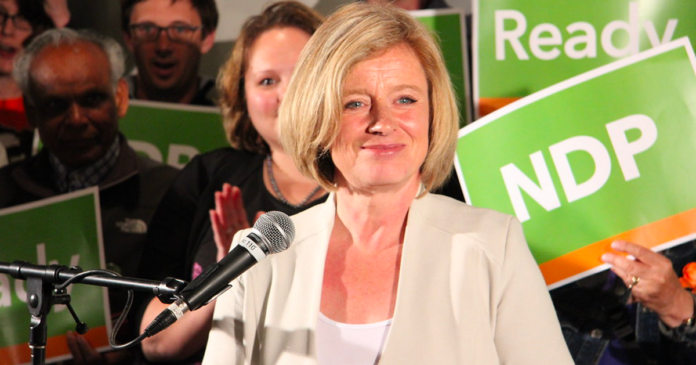Seven times the CBC showed they were anything but “impartial and independent”
It’s no secret that the CBC has a long-standing left-wing bias that permeates every aspect of its reporting. From its selective coverage of certain stories to its slanted opinion pieces, it’s clear that the CBC is more interested in pushing its own political agenda than in reporting the news objectively.
The CBC has been caught time and time again censoring or downplaying stories that don’t fit their liberal narrative, while exaggerating or sensationalizing stories that do.
CBC’s recent spat with Twitter over a “government funded media” label has many Canadians paying attention to the broadcaster’s political bias.
True North has compiled seven times the CBC’s bias against conservative politicians and causes was on full display in recent years.
Failed lawsuit against the Conservatives
A prime example of the state broadcaster’s left-wing bias and attempt to silence its critics on the right was when the CBC decided to sue the Conservative Party during the 2019 election.
The CBC alleged that the party’s use of excerpts from its programs infringed on the so-called ‘moral rights’ of two of its employees, news anchor Rosemary Barton and reporter John Paul Tasker.
In response at the time, the Conservatives criticized the CBC over their decision to launch a lawsuit on the eve of an election.
A year and a half after the electionTwo years ago, a federal court dismissed the CBC’s frivolous lawsuit.
Federal Court Justice Michael Phelan ruled that the Conservative Party of Canada (CPC) did not violate CBC’s copyright when it used excerpts from the broadcaster’s footage in an online ad and tweets. He concluded that the CPC didn’t break any laws and were entirely under the “fair dealing” use of the materials.
“There was no evidence presented that a broadcaster’s segment disclosed in a partisan setting reflected adversely on the broadcaster,” ruled Phelan.
Invented Russian conspiracy theory about Freedom Convoy
It’s no secret that the Trudeau government was not a fan of the Freedom Convoy – and it appears the CBC weren’t either.
In Jan. 2022, the CBC went off the deep end with baseless accusations and conspiracy theories about the Convoy.
During a Power & Politics segment, a CBC anchor baselessly suggested that Russia was involved in organizing the Freedom Convoy, without any proof whatsoever.
“Given Canada’s support of Ukraine in this current crisis with Russia, I don’t know if it is far-fetched to ask, but there is concern that Russian actors could be continuing to fuel things as this protest grows, perhaps even instigating it from the outside?” asked Nil Köksal.
In reality, the Freedom Convoy was a grassroots movement of hardworking Canadians who were fed up with the government’s overreach and the infringements on their liberties during the Covid-19 pandemic.
Even the CBC Ombudsman called out their bias saying they relied on a “speculative question” without grounding.
“The fundamental flaw, in my view, was the use of a speculative question when it was not called for,” wrote Jack Nagler.
“Instead, Power & Politics presented its question without attribution. It was not clear to viewers whether anyone was offering evidence that Russia was involved in the convoy – or why they would have such a concern. Asking the question in this way left room for people to surmise that CBC believed such evidence existed.”
Devoting 500% more time to Kamala Harris than to Leslyn Lewis
The CBC is infatuated with the Democrats in the US, as indicated by CBC CEO Catherine Tait’s donation to the Hillary Clinton campaign in 2016 and the state broadcaster’s anti-Trump coverage throughout his presidency.
The CBC’s obsession with US politics and the Democrats was on full display when Canada’s state broadcaster n showed its left-wing bias during the 2020 Conservative leadership race.
The CBC gave more coverage to American Democrat vice-presidential nominee Kamala Harris as the “first woman of colour to compete on a major party’s presidential ticket” thanthey did the Canadian Conservative leadership candidate Leslyn Lewis – despite Lewis being the first black woman to run to lead the party.
According to a True North review of articles from the time, Harris received 500% more headlines from the CBC mentioning her name than Lewis. The CBC dedicated 45 headlines to the American left-wing politician compared to only nine headlines to the Conservative leadership candidate.
By law, the CBC is required to “be predominantly and distinctively Canadian, reflect Canada and its regions to national and regional audiences, while serving the special needs of those regions.”
CBC selectively edited Erin O’Toole’s comment about defunding the broadcaster
Also during the 2020 Conservative leadership race, the CBC was caught red-handed trying to manipulate an interview by selectively editing candidate Erin O’Toole’s comments on defunding the public broadcaster.
During the interview on CBC’s The House, guest host David Cochrane asked O’Toole about his plan to defund the outlet.
His response and the question were entirely removed from the interview that was broadcast across Canada despite not removing any other portion of the interview.
“I did an interview with CBC Radio, but they edited out the question where they asked me about my plan to defund the CBC. Seems the CBC doesn’t want Canadians to hear my answer,” tweeted O’Toole.
In a lazy attempt to explain away the discrepancy, the CBC claimed they edited that part of the interview “for time.”
Citing a doctor that received $2 million in Pfizer funding to promote child vaccination
At the height of the Covid-19 pandemic, the CBC failed to report on important conflicts of interest when it came to the push for vaccination of 5-11-year-olds.
The CBC and other media outlets have failed to disclose nearly $2 million in funding from Pfizer Pharmaceuticals received by pediatrician Dr. Jim Kellner who was cited as an expert in articles by the broadcaster – clear example of the media’s bias towards the pro-vaccination narrative and their unwillingness to report on any potential conflicts of interest that could undermine it.
The CBC published one article titled, “Wondering about vaccinating younger kids against COVID-19? Alberta experts weigh in” without any reference to his long relationship with one of the chief manufacturers of the Covid-19 vaccine.
A search on the outlet’s website turned up Kellner’s name over 41 times.
Doubling down on misleading reporting about Freedom Convoy donations
Prime Minister Justin Trudeau took the drastic measure of triggering the Emergencies Act to quash the Freedom Convoy last year based on misleading and biased analysis from the CBC.
The Liberals cited “the Broadcasting Corporation’s February 14, 2022 analysis of the data” regarding donations from GiveSendGo.com as justifying their decision to freeze the bank accounts of protestors.
“The importance of this measure is highlighted by the Canadian Broadcasting Corporation’s recent reporting about the crowdfunding website, GiveSendGo.com, which indicated that the majority of the donations to the protests were made by donors outside of Canada,” claimed evidence submitted by the federal government.
Testimony by GiveSendGo executives and debunked CBC’s claims that a majority of the donations came from outside of Canada, saying that 63% of the donations were from Canadian sources.
Being accused of a “manufactured controversy” over story that relied on anonymous sources
CBC News’ political bias came through most recently when it refused to retract its story that accuses Alberta Premier Danielle Smith’s office of meddling with Crown prosecutors over Coutts border blockades cases.
Although it printed the story based on anonymous sources and emails it had not seen, the CBC has stuck by the article, risking a lawsuit with Smith.
Not only has Smith called the article “defamatory,” itsit’s claims were debunked by the civil service and Crown prosecutors.
“The Premier calls on the CBC to retract its outrageous story and, further, that the CBC and the Official Opposition apologize to the Premier, Premier’s Office staff, Alberta Crown prosecutors and those in the Alberta Public Service, for the damage caused to their reputations and that of Alberta’s justice system,”wrote Smith in a statement.



























